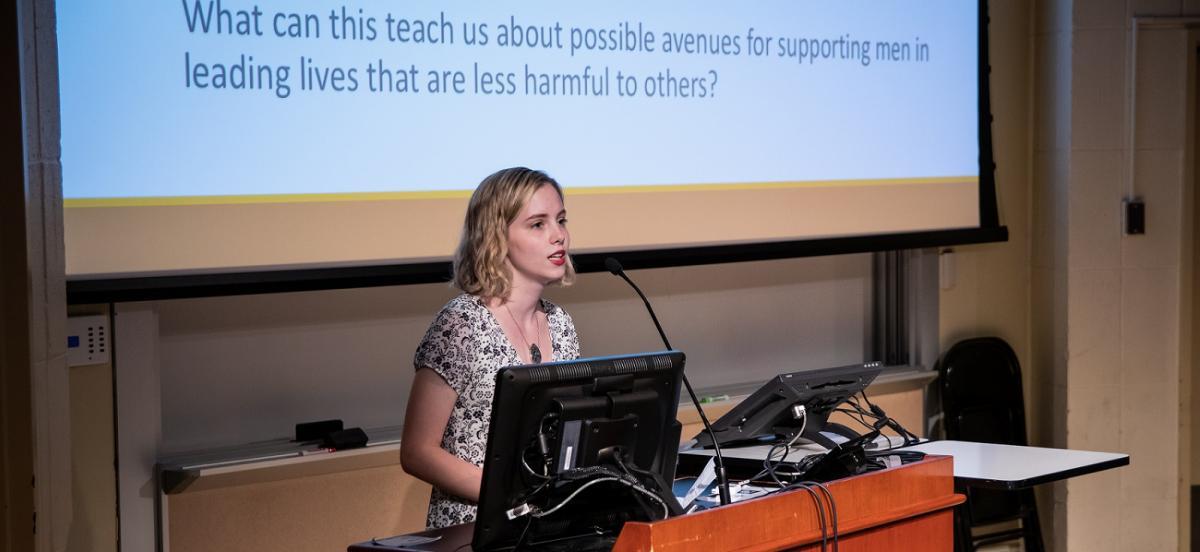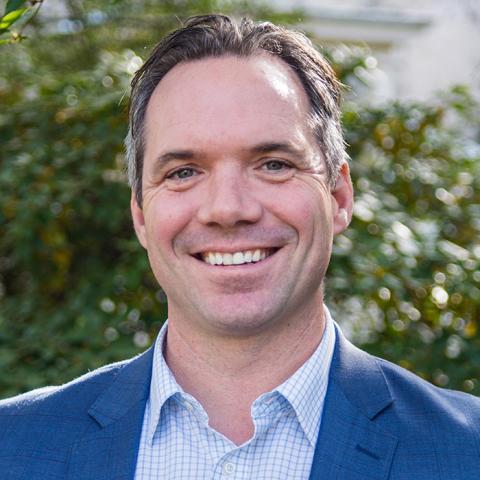Nominations Due March 25 for the Publicly Engaged Scholar Award

Amanda Grolig '19 presents her research "Restorative Justice Education and Masculine Flexibility." Photo by Kian Williams '22
Details
Please nominate seniors for the Publicly Engaged Scholar Award, which includes recognition at graduation and a $500 prize. Due to the pandemic, alumni from the classes of 2020 and 2021 will also be considered in this round of nominations. Self-nominations are encouraged. The student does not need to have worked through the CPGC to receive the award. The nomination deadline is Friday, March 25.
Award criteria include: (a) does the research advance understanding and action for peace, social justice, or global citizenship? (b) did the question emerge with and from people most affected by the justice / injustice question under consideration? and (c) are the results developed and disseminated in a manner conscious of inclusive and accessible knowledge mobilization? Examples are provided below. We do not anticipate that all nominees will necessarily meet all of these criteria.
Nominations should be sent by email to Eric Hartman (ehartman1 [at] haverford.edu ()) and should include brief (no more than one page, total) explanation of how:
-
The research advances peace, social justice, and/or global citizenship
-
To the extent applicable:
-
The research emerged through relationships with organizations and networks advancing justice (e.g., Decolonizing ethnography: Undocumented immigrants and new directions in social science. Self-reflective research on and among networks of which researchers are a part is included here, e.g., Messy Spaces: Chicana Testimonio and the Undisciplining of Ethnography). While the preceding two links mention ethnography, we have been fortunate to fund several distinct initiatives, across many disciplines, featuring archival work at this intersection, e.g., Partnering on digital archives and human rights in Guatemala. Community Science-related submissions are also most welcome.
-
The research has been developed with an awareness of the value of communicating concisely with diverse audiences (e.g. findings were shared in community spaces or workshops, or with collaborators via zoom; insights were put to use by community organizers or activists; research was shared in blog posts, newspaper op-eds, or public media, online via social media, etc.).
-
Amanda Grolig '19, Sociology, was the first award winner for her thesis, Restorative Justice Education and Masculine Flexibility, completed through a relationship with Let's Circle Up, a long-standing partner of the Center for Peace and Global Citizenship.
Please send nominations directly to CPGC Executive Director Eric Hartman at ehartman1 [at] haverford.edu, by Friday, March 25.





